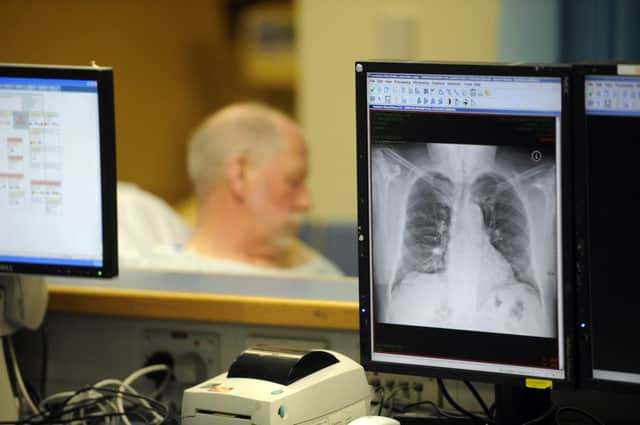Social enterprise can improve Scotland’s health


ONE of the great ironies of the modern age is that, despite improvements in average levels of health and wealth in the more advanced economies of the world, health inequalities are widening. Unfortunately, Scotland is an exemplar of this phenomenon, with differences in life expectancy between richest and poorest being as much as 28 years according to recent work sponsored by the World Health Organisation. A further irony is that such gaps have widened in recent decades, despite us having a world-class NHS and world-leading public health research and practice.
With these societal challenges in mind, Glasgow Caledonian University (GCU) has launched a series of high-profile research projects to discover if social enterprises – not-for-profit organisations which use business principles to tackle social problems – can help the nation lose its “sick man of Europe” tag.
Advertisement
Hide AdAdvertisement
Hide AdThere are around 2,000 such organisations in Scotland, with 500 in Glasgow alone, and Scotland is widely seen by practitioners and policy makers as having one of the most supportive environments for social enterprise in the world. But, the impact of such activity on health as well as economic outcomes has never been studied.
GCU researchers at the Yunus Centre for Social Business and Health have recently received more than £2 million from the Medical Research Council and the Economic and Social Research Council to conduct an ambitious programme of work which will find out if and how these organisations can tackle Scotland’s health inequalities.
The big idea behind the research programme is that any social enterprise can be thought of as a creator of health, not just those who act as providers of health services. To give an example, it is often forms of social vulnerability such as isolation, exclusion, hopelessness and homelessness which lead to ill health and disease. By definition, just about all social enterprises try to act on some aspect of social vulnerability, but this has never been researched in depth before.
If it can be shown that there is something in this, then we would not be calling for social enterprise to replace NHS and other public health activities, but rather for it to be recognised as an important supplement to such activities.
The social enterprise community will be represented by leaders in the field, such as Glasgow-based Impact Arts and Aberdeen-based Aberdeen Foyer, and support organisations including the Social Enterprise Academy, Social Enterprise Scotland, SENSCOT and Social Firms Scotland. The five year study was launched last month. GCU’s Yunus Centre is also a key partner in a new three-year study employing evolutionary theory – Darwin’s famous idea of the survival of the fittest – to identify the best breeding ground for social enterprise: to discover what factors help them or hinder them to grow into institutions that have the best possible effect on their communities.
Former Communist states such as Serbia, Poland and Albania are looking to countries like Scotland, where the third sector has a long tradition going at least as far back as the Industrial Revolution, to discover what seems to “work”.
We already know that factors such as access to advice and support, finance and appropriate legal structures are all crucial, but this research will allow knowledge to be shared on what commonly makes for an “enabling eco-system” for social enterprise and entrepreneurship. We can’t expect that what works well here will necessarily work there, or vice versa, so this research will help explain what elements need to be adapted to suit specific social, political and cultural contexts.
Should both of these ground-breaking projects prove fruitful, it will present significant challenges to government about how to enhance and support such new pathways to health and wellbeing. It will require new relationships between governments and their communities. This might well involve subsidising social enterprise activity, because investment in the third sector produces a better solution to health challenges and impacts in ways that, by itself, the state is simply not in a position to deliver. Likewise, it might also involve changing the regulatory environment to allow social enterprise to thrive, because it enhances community wellbeing in ways other businesses cannot.
Advertisement
Hide AdAdvertisement
Hide Ad• Professor Cam Donaldson holds the Yunus Chair in social business and health at Glasgow Caledonian University and is author of Credit Crunch Health Care – How economics can save our publicly funded health services.
SEE ALSO